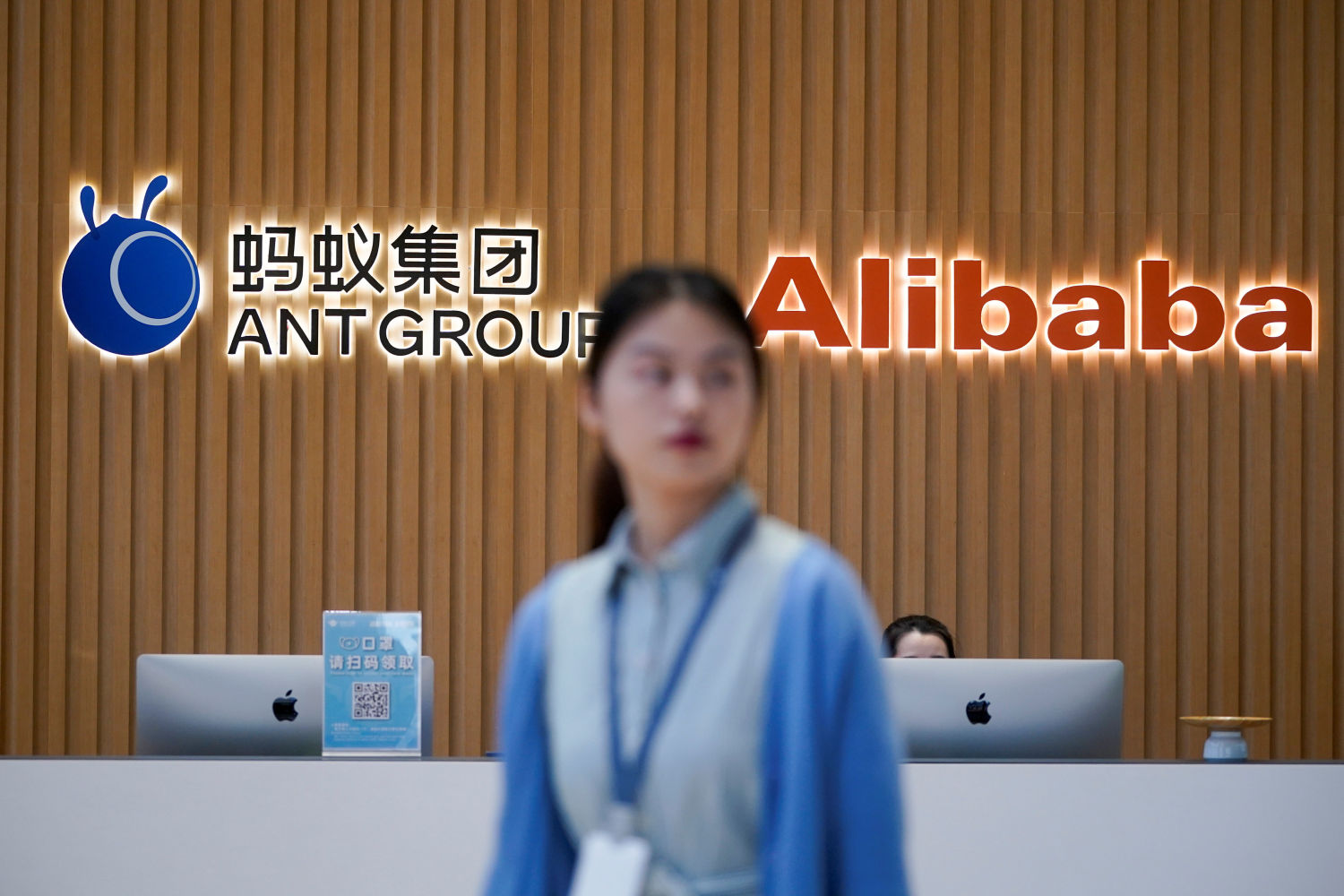(ATF) China’s top securities regulator said on Friday it will restrict fintech companies and prohibit financial services companies from listing on the Nasdaq-style STAR Market – a move that analysts say will likely make Jack Ma’s online finance titan Ant Group unqualified for a revived IPO on the science and technology innovation board.
The move came amid rumors that Chinese regulators want the Alibaba founder to divest control of Ant to a new owner they consent to. But an IPO in Hong Kong may still be a viable option for Ant Group.
In a circular published by the China Securities Regulatory Commission (CSRC) on Friday, the regulator said it is amending the listing rules for the STAR Market so as to make sure the bourse is focused on supporting “hard science and technologies” and to “improve the quality of listed companies from the source”.
The STAR Market was launched nearly two years ago with a US-style registration and disclosure-based IPO regime in a bid to dissuade Chinese tech startups from tapping offshore bourses, and to fast-track listings. It became the world’s fourth most popular listing venue in 2020, with IPOs raising $20 billion.
“Restrict the listing of fintech and model innovation enterprises on the STAR Market; Prohibit the listing of real estate enterprises and enterprises mainly engaged in financial and investment businesses on the STAR Market,” article 3 of the new rules said.
On top of that, the new rules ask that a company’s percentage of employees in research and development (R&D) must be more than 10%, in addition to previous requirements for R&D investment to be more than 5% of a company’s revenues, and for a company to hold at least five patents in its main business area.
There are now over 250 companies on the STAR Market, spanning across the sectors of integrated circuit, biopharmaceuticals, new materials and advanced manufacturing. On average, they spend about 12% of their revenues in R&D and each holds 75 patents, according to the CSRC.
Several analysts expect the new listing rules to dim hopes of Ant doing an IPO on the STAR Market.
“Optimistically speaking, Ant may be regarded as a fintech company. Even though restricted, the policy does not completely close the door for its IPO. But pessimistically speaking, if Ant is regarded as a financial services company, there won’t be an IPO,” Li Chuan, an independent stock analyst, said.
To seek an IPO on the STAR Market, Ant Group may have to separate Huabei and Jiebei, its micro-lending businesses, in order to qualify as a “fintech company”, he said.
Hong Kong a better option?
Given that Chinese companies are facing stricter auditing rules as US-China tension intensifies, listing in Hong Kong may be a viable option, Li added.
“The regulators have defined Ant Group as a financial services firm rather than a tech firm, and this will be reflected in its valuation. Even if Ant is listed overseas, it will be difficult for it to enjoy the valuation of a tech firm. After all, Ant’s main business is in China,” a finance blogger said in his column on NetEase.
Ant has been under severe regulatory pressure to rejig its operations and transform into a financial holding company to help reduce the risks associated with its business.
Reuters reported on Sunday that Chinese regulators want Jack Ma to divest control of Ant, and one option would be to transfer his stake to a Chinese investor affiliated with the state. Ant, however, dismissed the Reuters’ report and untrue and inaccurate.
Shortly after Jack Ma’s infamous speech last October, when he criticised the “pawnshop mentality” of Chinese banking officials at a forum in Shanghai, Chinese regulators pulled the plug on plans for a dual listing of Ant Group in Shanghai and Hong Kong in early November. It had been expected to be the world’s biggest IPO and set to raise about $37 billion.
Since then, regulators have introduced new micro-lending rules that will significantly affect Ant’s profitability, allegedly because of concern about the growth of online lending and its capacity to destabilise China’s financial system, which was hit hard by the coronavirus and has left the country’s banks swamped with bad loans.
The authorities subsequently started an investigation into Ant Group and its parent company Alibaba, while the 56-year-old billionaire Jack Ma vanished from public view for almost three months until he reappeared in a video link in January.
$2.8 billion fine
Earlier this month, China’s major markets regulator said it had levied a penalty of 18.23 billion yuan ($2.8 billion) on Alibaba for abusing its market dominance. Almost at the same time, Chinese authorities announced a restructuring plan for Ant Group to transform into a financial holding company, and for it to cut links between its payment and micro-lending services.
Analysts and investors in Hong Kong and abroad now seem convinced that the state crackdown on the sector is likely to limit the prospects of Ant, by forcing it to boost its financial reserves and lowering its expected profitability and value.
Last year, Ant’s valuation was touted at $315 billion for its IPO. Now, even before news of the revamp, sources told Reuters some global investors valued Ant around $200 billion based on its 2020 performance.
Leland Miller, CEO of US-based consultancy China Beige Book, is among those who expects Ant’s IPO plans to be resuscitated at some point, but said he doubted authorities are in a hurry.
William Huston, founder and director of institutional services at independent investment advisory firm Bay Street Capital Holdings said Ant as a bank or financial company IPO was a different investment thesis than Ant as a fintech company.
Huston reduced the firm’s positions in Alibaba last year from 8% of the portfolio to less than 1%. “We were initially taking that position early on, thinking Ant would eventually IPO,” he said. “It is a significantly different opportunity now. There is no hurry to jump into investing in a bank.”
Other company listings canned
Prospective listers have been put off after the halting of Ant’s $37-billion float.
More than 100 companies have voluntarily withdrawn applications to list on Shanghai’s STAR Market and Shenzhen’s ChiNext since Ant’s termination of its IPO in November 2020, exchange filings show.
The unprecedented withdrawals come against the backdrop of sharply intensified grilling of listing prospects by regulators, leading to IPO delays, outright rejection or even penalties, bankers and company executives say.
Early this month, JD.com’s fintech arm announced that it will terminate its IPO plan after its application was put on hold for almost seven months. Its valuation was 200 billion yuan ($30.7 billion) last September.
The company has been transforming into a “tech” company, changing its name from “JD Finance” to “JD Digits”, and most recently “JD Technology”. After taking over the cloud computing and artificial intelligence service businesses from JD.com in December, it now positions itself as a digital solution provider to enterprises, financial institutions as well as government agencies.
























